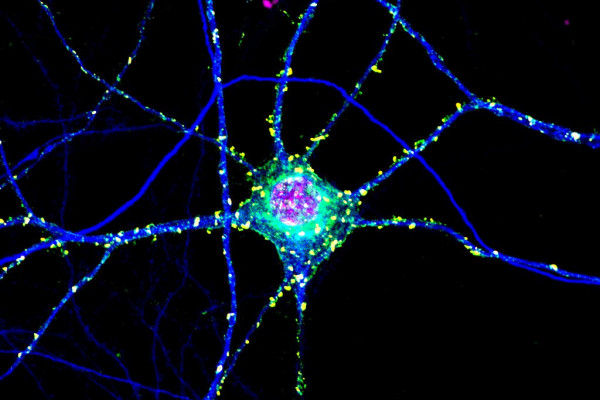Researchers have used stem cells to make neural implants more refined and with less scar...
Interviews with Scientists
Interviews about medicine, science, technology and engineering with scientists and researchers internationally...
Ramsey Faragher has been to Google’s headquarters to play with “Tango”, a next generation smartphone that comes with a...
Why are US company Pfizer so interested in acquiring the UK pharmaceutical giant AstraZeneca, and is it a bad thing...
The Middle East Respiratory Syndrome coronavirus seems to be spreading from Saudi Arabia, with nearly 500 people...
Radio waves might be interfering with the migration patterns of nearby birds, according to research from Germany...
Peter Grindrod is working on a pilot scheme in Bracknel to examine how maths could help improve the networks...
Technology company ABB are working on developing high voltage systems, which they think could transport power further...
Energy sponge technologies soak up excess any energy from the the grid, and then “wring” it back out when less is...
A new “smart” national grid system could control how we use power according to how much is available...
A protein that regulates metabolism in worms also helps to protect them from the effects of ageing.
Learning more about the genes that allow flatworms to regenerate organs and tissue after amputation.
Generating different types of hormone-secreting cells from human tissue sources could lead to new treatments for...
Viruses have been used to deliver two types of nucleases into cells for targeted gene editing.
Drugs could treat neuropathic pain more effectively if they targeted more than one type of ion channel.
Our crisp and crunchy Gene of the Month is called Tempura, named after the Japanese deep-fried battered treat.
Professor Hank Greely from Stanford Law School explores some of the ethical issues around genetic testing for...
Professor Marcus Munafo is trying to get to the bottom of another big question - how much of our personality is nature...
Dr David Sweatt is researching one of the most fundamental questions in brain research - how we make memories.
Jon Tennant explains how mass extinction events changed the face of Earth's biodiversity and answers questions...
Stephanie Pierce explains to a live audience at the Cambridge Science Centre how early life crawled out of the oceans...
Alex Liu explains what the fossil record tells us about how Earth's first animals developed from bacteria...
As we build at higher densities, architects are having to think more creatively about how to make the maximum use of...
One team changing how our homes might be built are DUS Architects in Amsterdam. They’re currently 3D printiting a whole...
Could we use bamboo in order to make housing across the world more environmentally friendly?
Breathing Buildings, are a Cambridge company who’ve come up with a way to much more efficiently ventilate our homes
